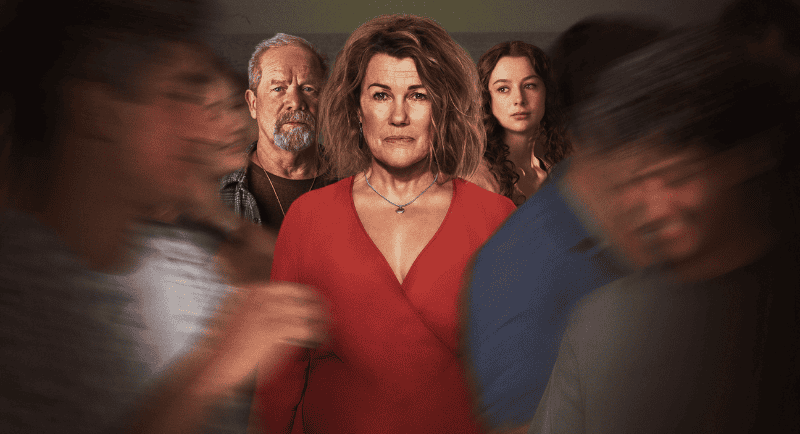The New Zealand drama After the Party recently launched on ABC TV. A special bonus episode of the TV Gold podcast featured an interview hosts Andrew Mercado and James Manning had with co-creator and co-star Robyn Malcolm.
The series is being called one of the best New Zealand dramas ever, and one of the best dramas to be screened in Australia this year.
Below are highlights of just part of the 30-minute interview. Listen to the TV Gold episode for the full unedited discussion. Malcolm has already won an international award for her part in the production. More are sure to follow.
A story of emotional complexity
Tell us in your own words about the plot of After the Party. It takes a little while for the viewer to work out what’s going on.
After the Party is a story about a divorced woman in her late 50s who is living a pretty singular life. She’s a science teacher, kind of pissed off with a lot of the world. She’s an environmental activist. She lives on her own. She’s got a daughter she doesn’t see much. And a grandson.
We find out through the first episode, that five years previously, when she was still married, she caught her husband during a party in bed with a young boy. She accused him of the sexual violation of a minor and did it publicly. You discover how it blew their lives apart, and her husband left town. He couldn’t stay in anymore because it ruined his life.
Five years later, which is where the bulk of the story it set, he returns. He does that because he wasn’t arrested, he wasn’t convicted. When he returns, it just opens everything up again and it becomes the story of who believes who? Did he really do it? Or didn’t do it?
We didn’t want to tell a simple story didn’t want to tell a linear story. We wanted to tell a story that was about the sort of the emotional complexity of family and marriage.
The story itself came from Diane Taylor, who is a film writer in New Zealand.
She wrote a film that I auditioned for. The central female character was in her mid-50s. I was on the shortlist until the director said, ‘No, I don’t want her and cast someone 20 years my junior.’
Women of a certain age
Di and I then started talking about the whole notion of aspirational casting, which seems to happen where women of a certain age can’t be played by women of a certain age. Apparently, the audiences want them to be played by somebody younger. That’s the way certain producers seem to see the world.
We talked about what it was that made middle-aged women unpalatable. We thought let’s write a really unpalatable middle-aged woman. Put her up a tree and throw rocks at her and see what happens.
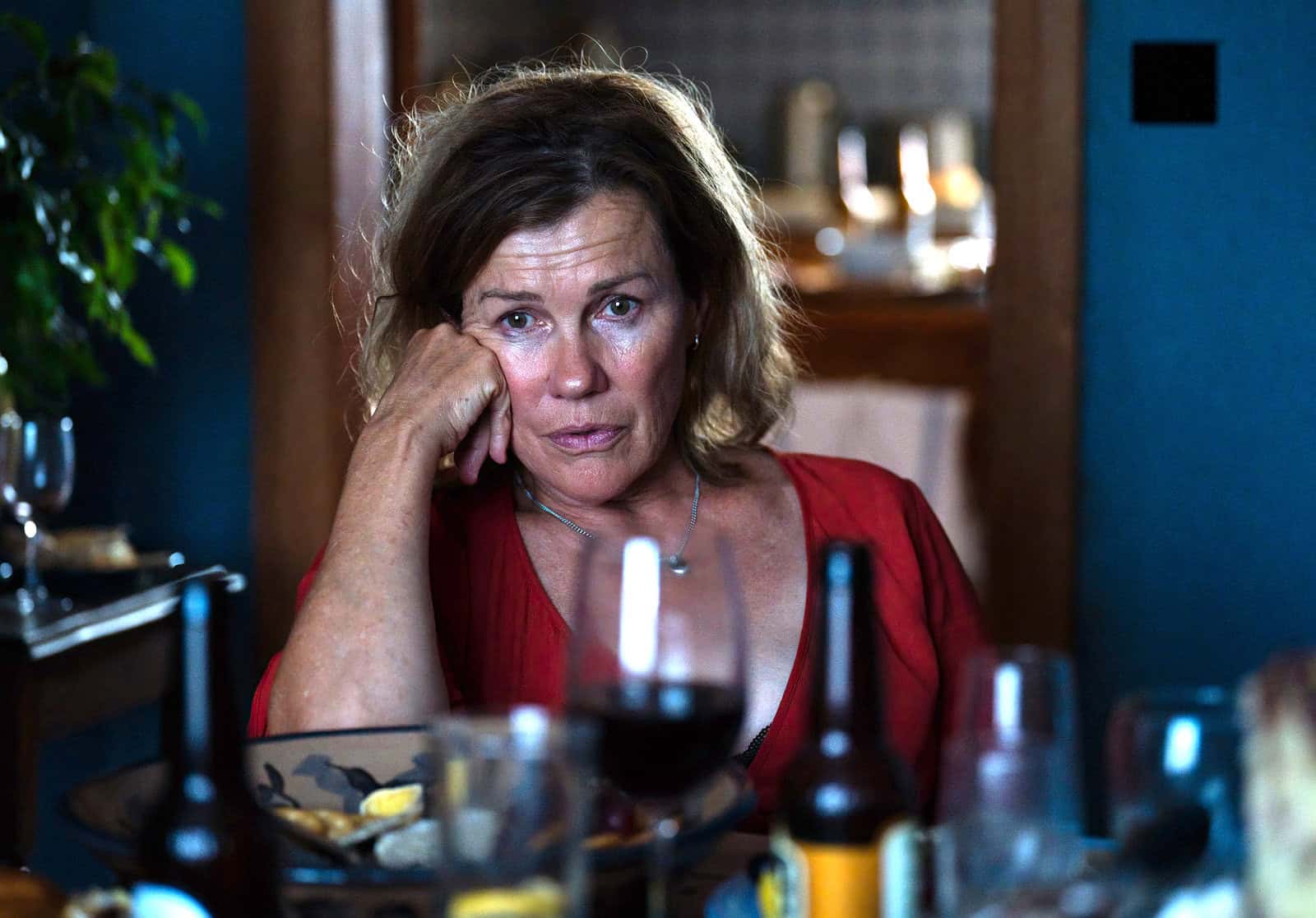
Production Stills. After The Party. Wellington, New Zealand. Photo: Marc Weakley/Cereal TV
Sending a message to TV executives
Your character is a life model who poses nude. Is this part of a visual message you’re sending to those TV executives who don’t cast an older woman? Women can still be beautiful in their 50s, which you are.
Why thank you. We find older bodies, men and women, but in particular women, really difficult to look at. Why is it not considered beautiful? Because of the sexualisation of them, I think. Because so many women in their 50s talk about becoming invisible. People of all ages, physically, without their clothes on, are incredibly beautiful.
The place where Penny is at her most visible is as a life-drawing model. It came from my experience. I was a life drawing model when I was 19 to get myself through drama school. I did it because I didn’t like my body very much. Sitting in a room where people just looked at me objectively and without judgment, because they were drawing me, was one of the most amazing healing experiences I’ve ever had.
Robyn Malcolm’s co-star
Tell us about casting Peter Mullan as your husband Phil.
I met Peter when we did Top of the Lake together. We’ve been great friends ever since. He and I worked together again on a Christian Bale film called Hostiles in America. We’ve stayed in contact and stayed mates. He’s always been someone that I’ve gone to for advice.
When we were writing After the Party I was in conversation with him on and off. At one point I just asked would you be in it? He said yes, if the scripts are good enough.
I sent him a script, and he indicated it was not good enough yet. He said, “If you get this right, it’ll be an award winner.” We made it better and sent it to him again. He went, “I’ll do it.”
Making After the Party
What have you learnt also being on the other side of the camera on After the Party? Has it changed the way that you’re an actor?
Absolutely, completely. I have a far greater empathy and respect and understanding of the production side of things. While I’m busy being an actor there are 100 people behind the cameras problem-solving. Peter put it well recently. We were at Series Mania in France a couple of weeks ago. [Robyn Malcolm won a Series Mania Best Actress award for After the Party.] Peter did a masterclass. He said acting’s like sex. Writing and directing and making something is like bringing up a baby.
Tell us about the shoot for After the Party.
We chose to film it in Wellington because Wellington is an unspeakably beautiful town and it’s a town that doesn’t get shot a lot. Most [New Zealand] drama gets shot in and around either Queenstown or Auckland. We chose Wellington because we wanted to put Penny and all the characters in a smaller city that felt like a small seaside community but wasn’t.
The terrain is tricky. She cycles everywhere up and down hills. Wellington is one of the windiest cities in the world. We wanted to put Penny in the wind. The great challenge for us was, because of climate change, the weather in Wellington is getting better and better and better. We had day after day after day of beautiful, calm, amazing weather. I really fell in love with Wellington big-time shooting it down there. It was magnificent.
Listen to the complete unedited TV Gold interview here.
Episode guide: After the Party
All episodes are available to download on iview. Warning: Below episode synopses include spoilers.
Series Overview
Penny’s world implodes when she accuses her husband Phil of a sex crime against her daughter’s teenage friend, and nobody believes her. Five years later, he returns from Scotland and moves in with Penny’s daughter Grace and grandchild. Grace begs her to put the past behind them, but when Phil takes up a teaching position Penny is again compelled to prove his guilt, reopening barely covered wounds in those around her and causing Grace to cut her out of her life. An increasingly alienated Penny is forced to choose what’s more important – the truth or her relationship with her daughter.
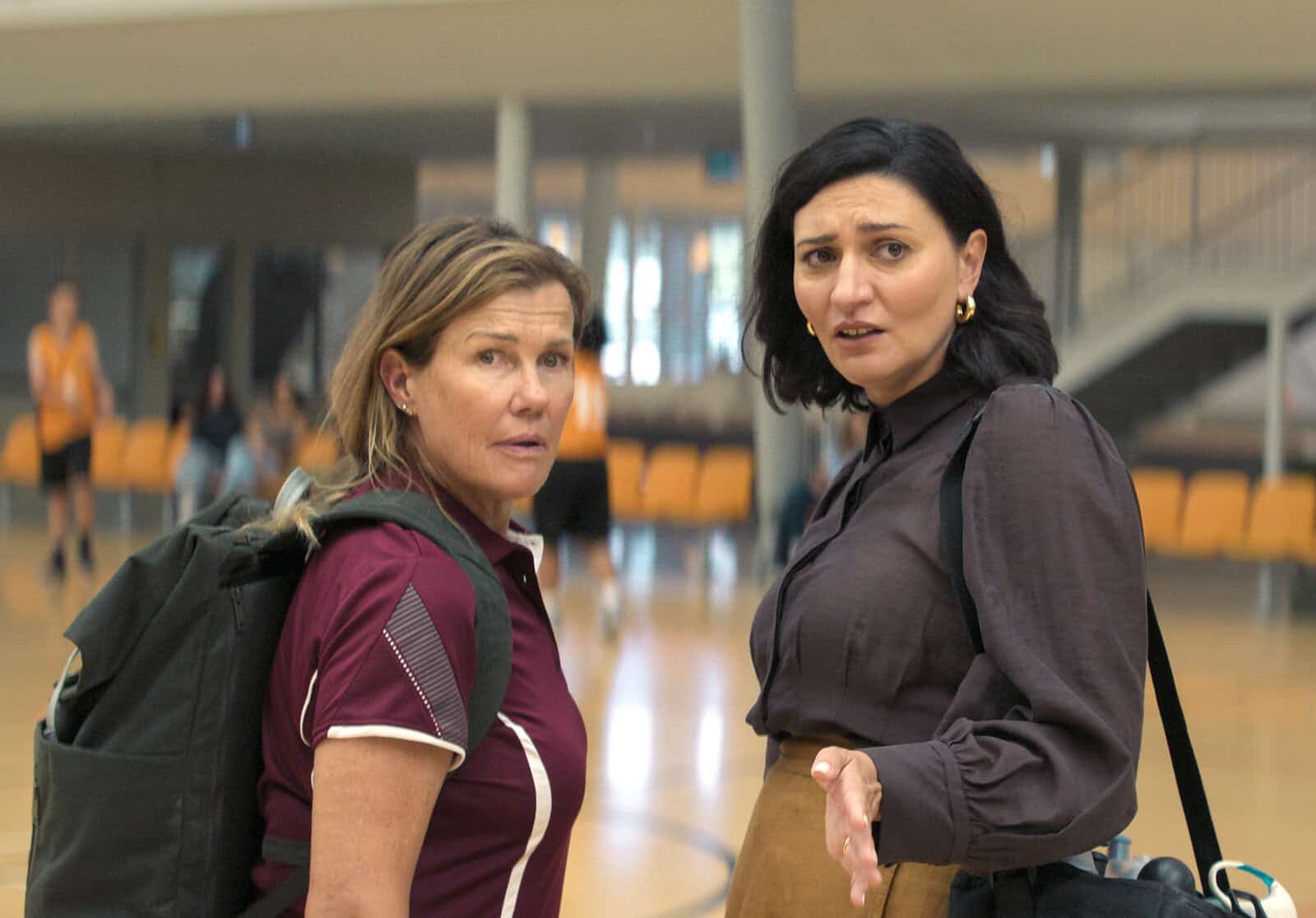
Penny (Robyn Malcolm), Bridget (Mia Blake)
Episode 1
Penny’s world implodes when her ex-husband Phil moves back to town. Five years ago, Penny accused him of a sex crime against her teenage daughter’s friend. Nobody believed her and Penny was ostracised from her friends and family. Penny’s now adult daughter Grace wants to welcome Phil back and have him move in with her and her three-year-old son, but Penny feels like she is losing the only family she has left. She takes her frustration out on a dodgy local fishing operator, staging a one- woman guerrilla attack on their boat.
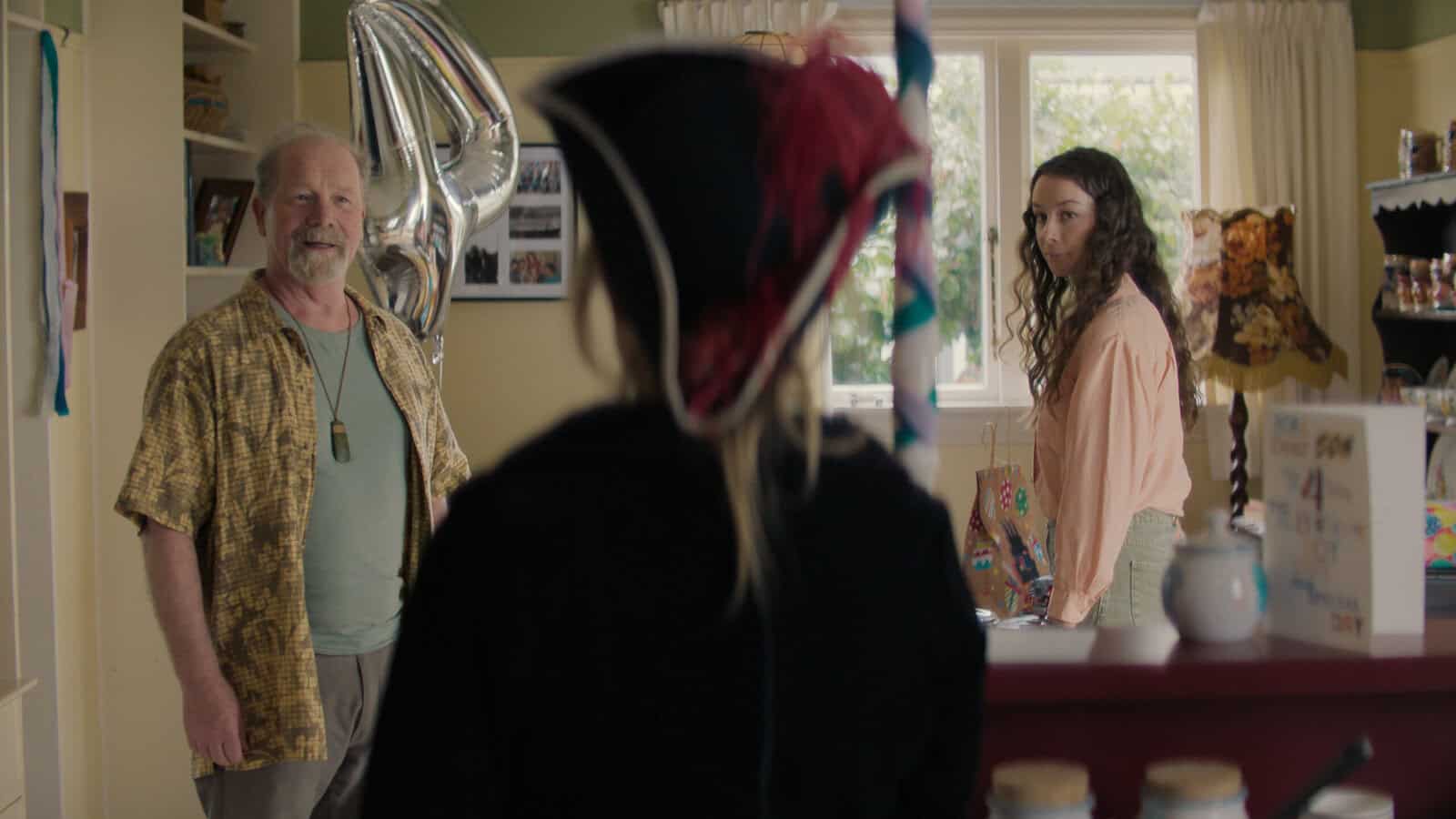
Phil (Peter Mullan), Grace (Tara Canton), Penny (Robyn Malcolm)
Episode 2
Penny’s friends counsel her to put the past behind her, for the sake of her relationship with Grace and her grandson. But Penny is struggling with Phil’s return and despite her attempts to play happy families, she causes an argument at Walt’s birthday party. When Phil takes a high school teaching job, Penny tries to warn the principal of the school but is dismissed. A sneaky attempt to dig up more about Phil’s years away leads Phil to warn her to back off, or risk losing Grace and Walt. Penny takes her friendship with Simon too far.
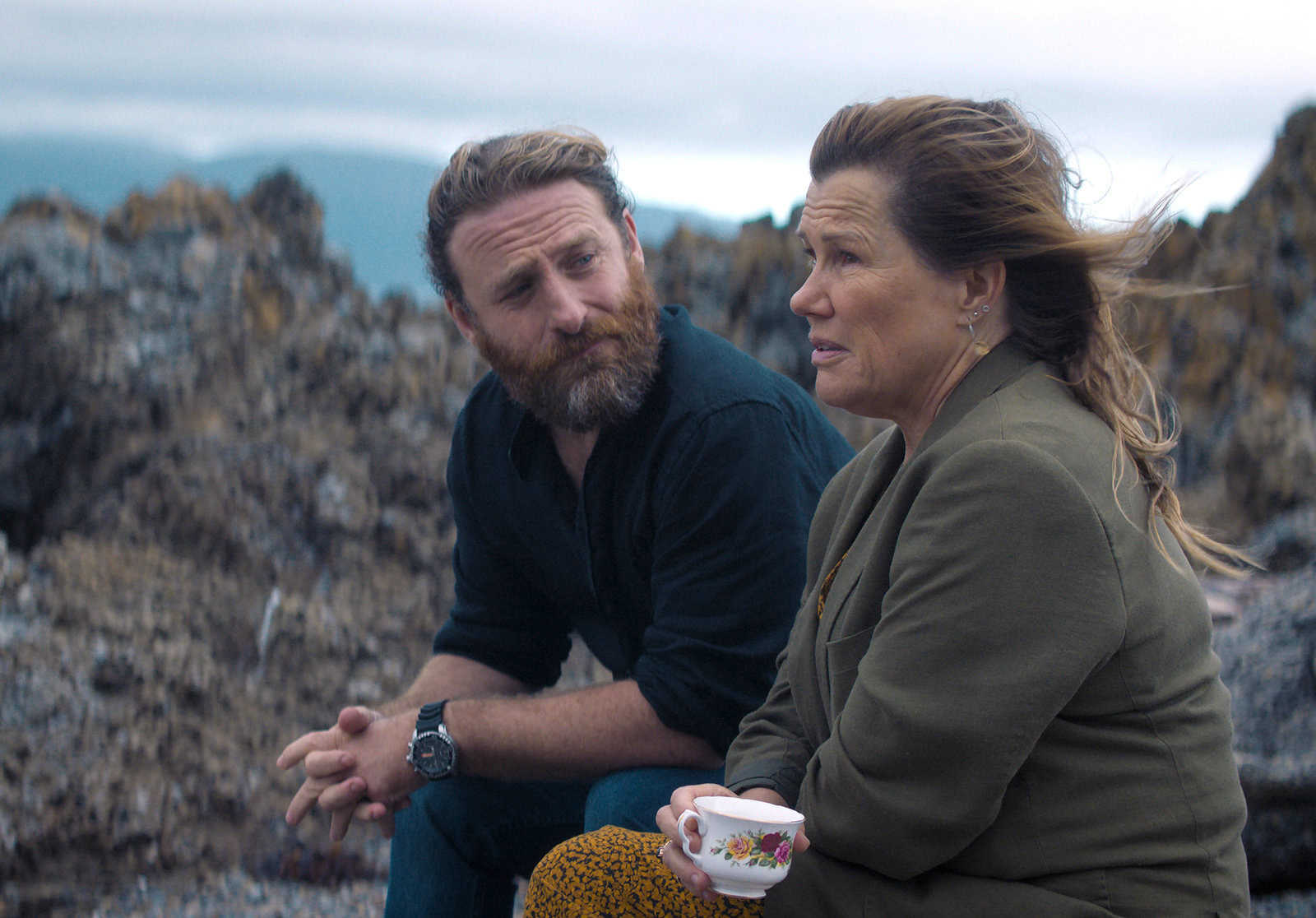
Penny (Robyn Malcolm), Simon (Dean O’Gorman)
Episode 3
Spurred on by the news that Phil will be selecting boys for a basketball camp, Penny at-tempts to find Ollie and persuade him to expose Phil. But Ollie denies that he was a victim of Phil’s and rejects Penny’s pleas outright. After the death of her mother, Penny feels like an outsider in her own family and seeks solace with Simon, which pushes their relationship into dangerous territory. A new accusation against Phil is revealed.
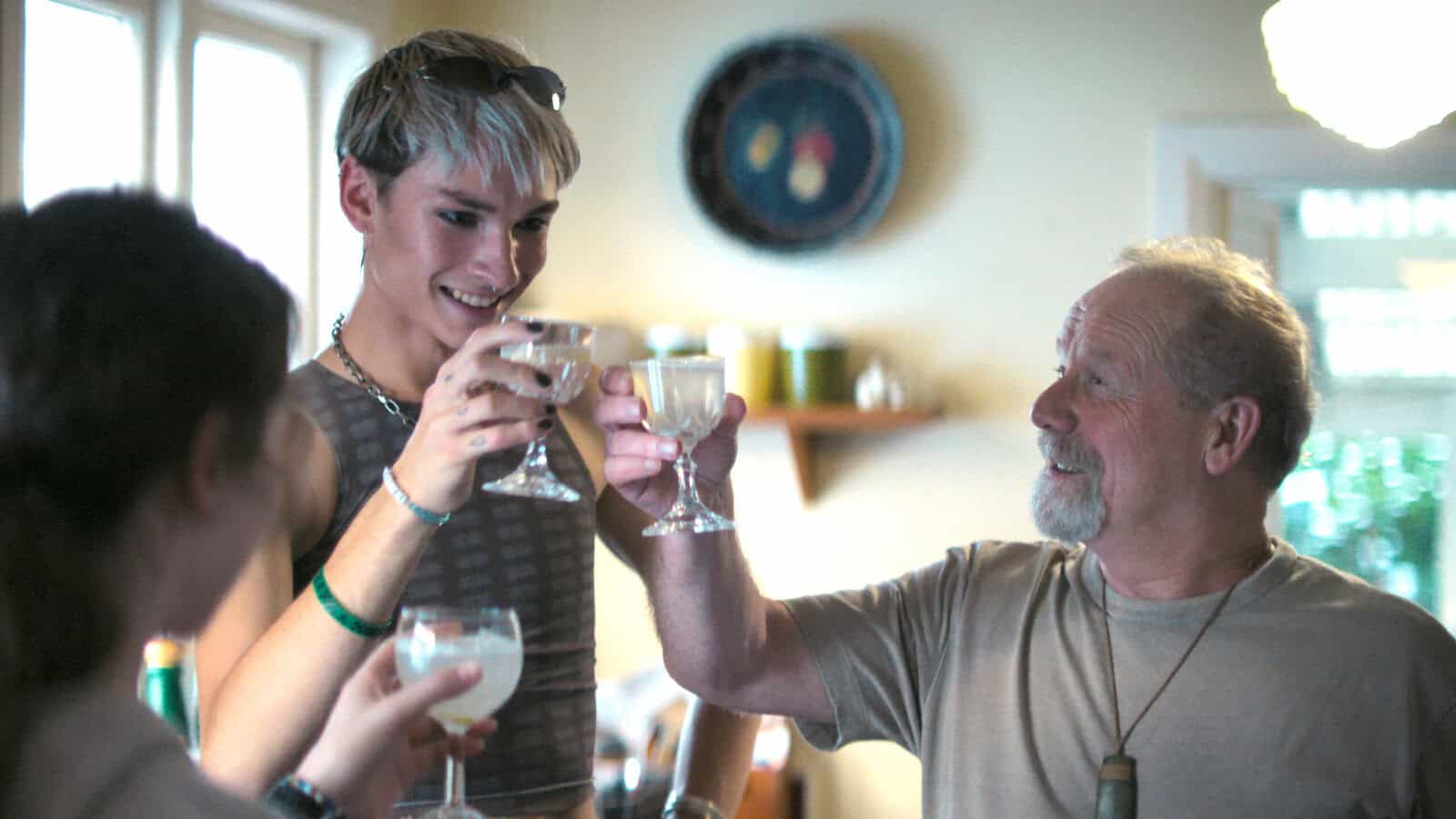
Ollie (Ian Blackburn), Phil (Peter Mullan), Grace (Tara Canton)
Episode 4
Grace is terrified that Phil will leave again when an anonymous accusation is revealed. Grace accuses Penny of being behind it. Penny takes it as proof she was right and steps up her campaign against Phil. Ollie resurfaces to rekindle his friendship with Grace, but she is hesitant. Grace finally confronts Phil for leaving her years ago and he agrees he will stay and fight this time. Grace cuts Penny out of her life and tells Ollie they can’t be friends.
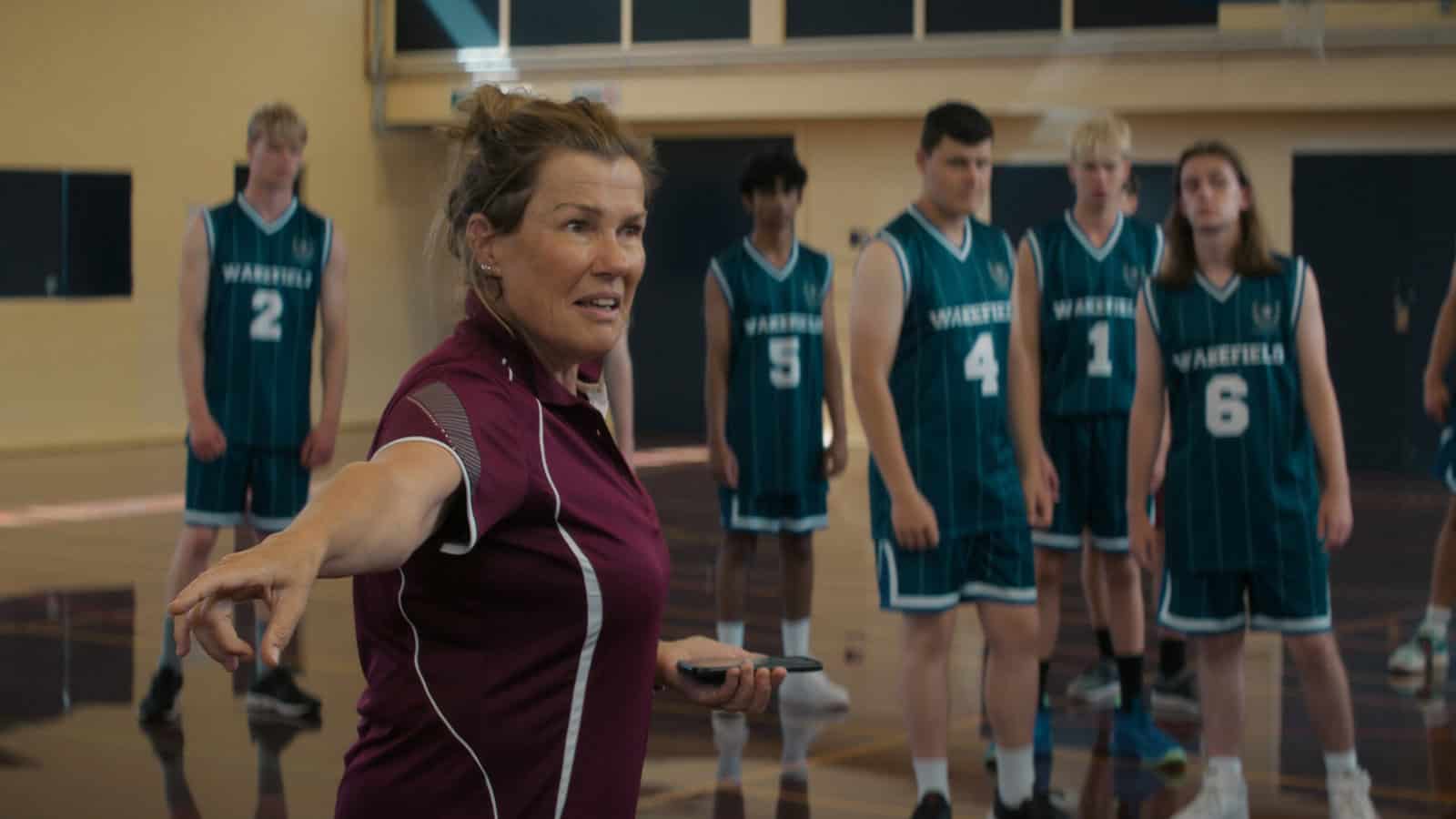
Penny (Robyn Malcolm)
Episode 5
Penny gets the graffiti perpetrator to report his story to the police, but it does not go as planned and severs another friendship for her. Simon and Penny bring their affair to an end, but not before Bridget has already formed her own suspicions. Penny is stood down from her job after publicly attacking another parent. Humiliated, isolated and broken, Penny is finally visited by Ollie, who enlightens her on the effect of her actions and the truth about Phil.
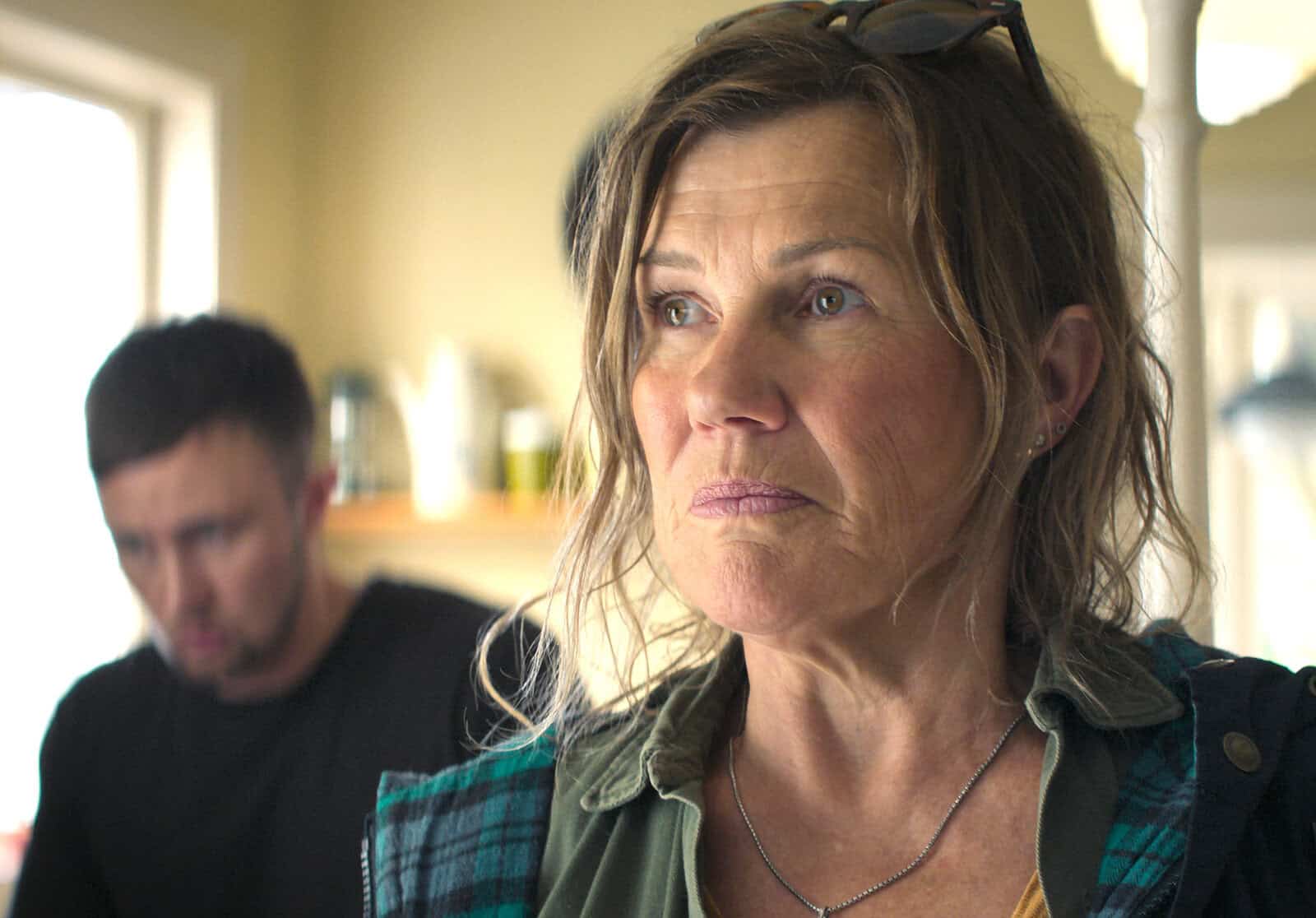
Penny (Robyn Malcolm), Tom (Elz Carrad)
Episode 6
Penny attempts to apologise to Grace and Phil but learns they are moving to Scotland. When Ollie goes missing, she asks Tom to look but doesn’t realise what this really means for Tom. Penny makes a new discovery and finally sees what was under her nose the whole time. At her farewell party for Grace, Penny’s relationship with her daughter finally begins to heal, but only because Penny’s suppressing what she now knows is the truth.
Production notes
After the Party is a Lingo Pictures & Luminous Beast production filmed on location in Wellington, New Zealand. Lingo Pictures’ Helen Bowden produced the series alongside Liz DiFiore and Peter Salmon with Salmon also directing all six episodes. Executive Producers are Lingo Pictures’ Jason Stephens, with Dianne Taylor and Robyn Malcolm.
Read the weekly Mercado on TV column in Mediaweek. Andrew’s review of After the Party.
